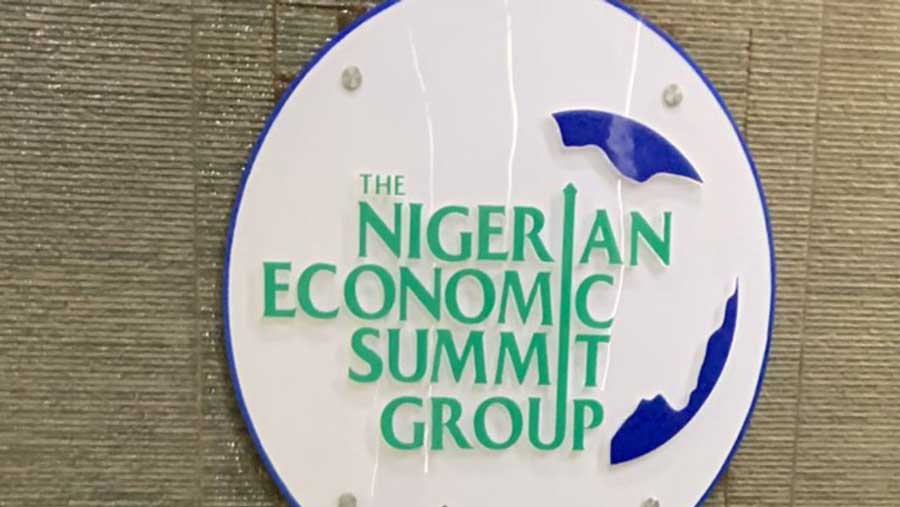NESG Projects 37% Unemployment, 45% Poverty Rate For Nigeria In 2023
The Nigerian Economic Summit Group (NESG), an association of organised private sector, has projected that Nigeria’s unemployment rate will increase to 37 percent while the poverty headcount will amplify to 45 percent in 2023.
Advertisement
NESG said this is due to weak performance in the job-elastic sectors, low labour absorption of sectors that will drive growth, and population growth estimated at 3.2 percent, which it said, will lead to a decline in real per capita income.
The Group disclosed this in its 2023 Macroeconomic Outlook Report, titled “Nigeria in Transition: Recipes for Shared Prosperity,” which was launched on Wednesday in Lagos.
NESG also projected that crude oil future will average $85 per barrel in 2023, noting that this suggests that the effect of the Russia-Ukraine crisis on the energy market will remain subdued.
It added that elevated demand for crude oil will sustain price at a level relatively higher than the $70 per barrel proposed in the 2023 budget.
Advertisement
Oil prices surged to a record high in 2022, hovering around $100 to $130 per barrel for the greater part of last year.
However, Nigeria failed to take advantage of the elevated oil market because of low investment in the upstream end of its oil sector as well as oil theft in the Niger Delta, which led to the country recording about 900,000 barrels of oil production per day in September – the lowest in recent years.
NESG said that as efforts to contain crude oil theft in the country intensifies, crude oil production will average 1.35 million barrels per day (mbpd) in 2023.
“This represents an improvement over 1.15mbpd in 2022 but is 20 percent lower than the 2023 budgetary oil production of 1.69mbpd. The outcome is an improvement in government capital expenditure to N2.35 trillion representing a budget implementation rate of 43.9 percent,” NESG said.
Based on these assumptions, the NESG stated that the real Gross Domestic Products (GDP) is expected to moderate to 2.98 percent, adding that economic growth will be subdued in 2023 due to strains on investment and low productivity in critical sectors.
Advertisement
“The services sector will drive economic growth, but this growth will not be strong enough to generate significant jobs. As a result, unemployment will remain unabated. Economic growth will be supported by election-related spending and improvement in the oil sector,” NESG noted.
According to the Group, inflation rate will average 20.5 percent in 2023, stressing that inflationary pressure is expected to remain elevated, driven by structural, cost and monetary factors.
“Food inflation will remain the fundamental driver of inflation due to the enduring impact of flooding, increased production costs due to increased cost of credit, insecurity and displacement. Existing fuel shortages and the removal of fuel subsidies will continue to increase the core components, especially transportation,” NESG projected.
NESG further projects that foreign capital inflow will decline in 2023.
“The trade surplus will be sustained albeit lower, the foreign reserve will deplete further, and exchange rate pressure will persist.
“Due to political risks and a negative yield on investment, investors will take a flight to safety in other emerging and developed economies. An improvement in crude oil production will sustain the trade surplus.
Advertisement
“CBN intervention in the FX market and shortage in FX inflow will culminate in a decline in foreign reserve to US$34.9 billion at the end of 2023. The decline in forex supply will further support exchange rate depreciation. CBN may consider Naira devaluation to reduce the exchange rate premium and reduce market intervention on the back of external reserve depletion.
“As a result, the official exchange rate is expected to hit N500/US$. Similarly, an FX shortage will support the black-market operation, where the exchange rate will depreciate even at a faster rate,” the Group said.
On monetary policy tightening, the NESG said it will continue, adding that the lending rate will remain high, and investment will be constrained.
“A tight policy stance in developed economies leads to capital. flight from developing and emerging markets and inflationary pressure will highlight the need for further tightening to close the interest rate differential and rein in inflation.
“This could heighten financial risk and increase Non-Performing Loans (NPL) in the banking system. Monetary tightening in 2022 has signalled an upward trend in interest rates.
“In addition, a faster increase in credit to the government will reduce credit availability to the private sector, thereby supporting further increases in the cost of borrowing,” the Group stated.
The Group also revealed that the country’s sovereign risks are expected to amplify this year.
“The budget underscores fiscal deficit expansion and the upward trajectory in public debt stock to N53.8 trillion. Fiscal sustainability will remain a concern as government revenue will be eroded by personnel costs and high-interest payments on debt.
“While moderate crude oil prices and improvement in crude oil production are expected to support revenue, an increase in debt servicing – especially external debt due to exchange rate depreciation– will constrain the government from expanding capital project expenditure,” the NESG revealed in the report.
ENDS



